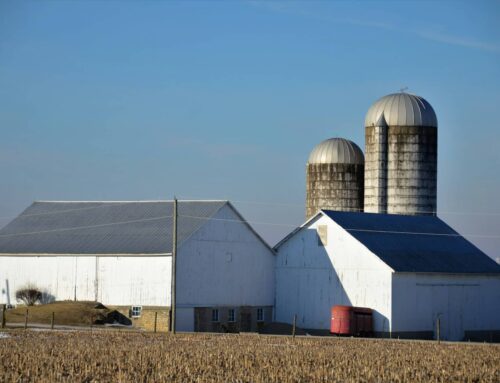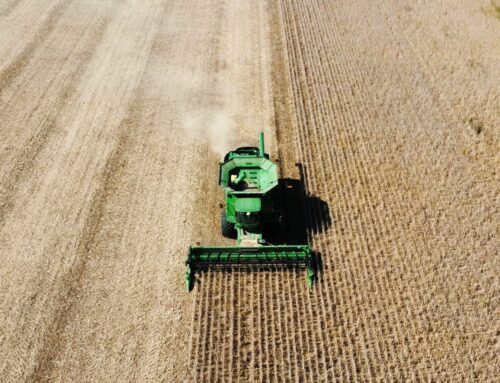Lawmakers claiming a desire to help farmers weather President Trump’s trade war have introduced a bill that would both weaken Congress’s power of the purse and increase farmer financial dependency on Washington. H.R. 3982 – Tariff Response and Damages to Exports Fund (TRADE Fund) authorizes the president to divert a portion of federal tariff revenues to a new fund controlled by the Secretary of Agriculture. The bill directs the Secretary to distribute this revenue to farm operations with “losses” as a result of the president’s trade war. While sold as a means of aiding farmers, the bill would actually increase the role of Washington in picking economic winners and losers while undermining efforts to create a more cost-effective and transparent financial safety net for farmers and ranchers. At the same time, it does nothing to tackle legitimate barriers to trade while undermining Congress’s Constitutionally-derived power to manage our nation’s finances.
TRADE Act – Congress Creates a Slush Fund
H.R. 3982 would create a multi-billion-dollar subsidy account managed by the Secretary of Agriculture. The bill provides little guidance on how the Secretary is to manage the fund and few requirements of transparency or public oversight. The fund would be authorized through fiscal year 2030, after which remaining funds would be rescinded.
Funding – Authorizes the president to direct any tariff revenue charged to importers of agricultural products (items listed in chapters 1 – 24 of the Harmonized Tariff Schedule) into the TRADE Fund.
- From 2020-2024, these chapters generated between $2.5 billion and $3.5 billion in tariff revenue annually.
- Through May, these chapters have already generated $3,066,812,2566.
- While final tariff rates are subject to trade negotiations, litigation, and the president’s direction, import taxes on agricultural products could reach $5 billion or more in 2025.
Recipients – The bill directs the Secretary of Agriculture to make payments to a potentially broad swath of agricultural operations with little guidance on how to focus on the operations in the greatest need.
- The bill does not provide a definition, or refer to existing definitions, of “agricultural producer,” instead directing the Secretary to “make payments to persons the Secretary determines are agricultural producers.”
- The bill defers to the Secretary in identifying “losses” the Secretary determines are caused by an equally broad set of criteria including:
- Decreased exports
- Tariff or non-tariff barriers imposed by other countries
- Increases in the costs of items and goods necessary for the production of agricultural commodities and livestock
Such a lack of specificity opens the door for subsidization of routine business costs regardless of their cause. A decrease in exports can occur because a foreign country increases tariffs on U.S. goods, or it can occur because of a change in consumer preference. Agricultural operations import many items, from fertilizer and machinery to seed and live animals, in their operations. One of the leading reasons many of these items are seeing an increased cost is because of the increased tariff rates imposed by the president.
Payments – The bill lacks guidance for how to focus payments on real farmers in real need.
- The bill does not restrict payments to individuals based on their income. Under current law most individuals are no longer eligible for farm subsidies once their income exceeds $900,000 in adjusted gross income.
- The bill does not direct the Secretary to set individual payment limits. The One Big Beautiful Bill Act (OBBBA) set a $155,000 annual payment limit for farm subsidy programs.
- Payment limits, means tests, asset tests, work requirements, regulatory compliance are all left to the discretion of the Secretary.
Transparency – The bill includes minimal reporting requirements that will not provide real-time understanding of the program.
- Annually, the Secretary is to submit a report on payments no later than 60 days after the end of the fiscal year a payment was made.
- The report is to include total transferred into the fund, the economic impacts the Secretary determined caused losses, and merely a summary of assistance provided.
- There is no specificity to report on payments by crop, product, state, type of operation, size of operation, or any other criteria.
- The report is to be submitted to the House and Senate Agriculture Committees with no requirement it be released to the public.
TRADE Act – Trading common sense for harmful subsidies
The TRADE Act is a fiscally irresponsible response to the Trump Administration’s trade war. Agricultural operations already benefit from an overly generous taxpayer subsidized safety net. Lawmakers included a $67 billion farm subsidy increase in OBBBA. The Trump Administration is in the process of distributing $31 billion in “emergency” farm supports provided in the omnibus spending bill last December. And the Secretary of Agriculture already has access to a massive slush fund, known as the Charter Act, that the Trump Administration previously used to distribute $23 billion in “emergency” trade assistance.
Lawmakers concerned about the negative financial impacts of the president’s trade war should take steps to rein in the administration’s ability to arbitrarily change tariff rates. Diverting taxes charged on import to create a multi-billion-dollar, no-strings-attached slush fund operated at the discretion of the Secretary of Agriculture is bad for taxpayers and farmers.
- Unsplash - Kelly Sikkema










